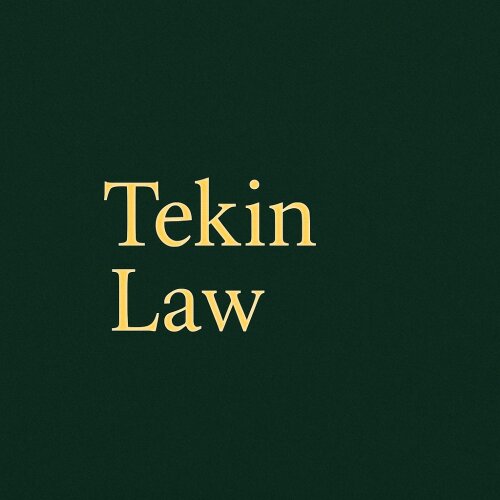Best Debt Capital Markets Lawyers in Turkey
Share your needs with us, get contacted by law firms.
Free. Takes 2 min.
Or refine your search by selecting a city:
List of the best lawyers in Turkey
Legal guides written by Tekin Law Firm:
- Arbitration in Turkey
About Debt Capital Markets Law in Turkey
Debt Capital Markets (DCM) play a significant role in the Turkish financial landscape. In simple terms, DCM refers to the marketplace where organizations, companies, and even governments can raise funds by issuing debt instruments, such as bonds and notes, to investors. These markets are crucial for financing public and private sector projects and enabling economic growth. In Turkey, the development of debt capital markets has been bolstered by regulatory improvements and alignment with international best practices, making it important for participants to understand the legal environment surrounding these transactions.
Why You May Need a Lawyer
Navigating the legal requirements of Debt Capital Markets in Turkey can be complex. Here are common situations where consulting a specialist lawyer is essential:
- Structuring and issuing bonds or other debt securities - Ensuring compliance with local regulatory frameworks and the Capital Markets Board (CMB) regulations - Preparing and reviewing offering documents and disclosures - Understanding tax implications for different structures - Handling cross-border transactions and foreign investor participation - Dealing with restructuring or refinancing of existing debt instruments - Managing default scenarios and investor protections - Negotiating with financial institutions, agents, or trustees - Complying with anti-money laundering (AML) and know your customer (KYC) requirements - Advising on secondary market trading and transfer of debt securities
Local Laws Overview
The primary source of law for Debt Capital Markets in Turkey is the Capital Markets Law numbered 6362, which is enforced by the Capital Markets Board (CMB). This law provides the general legal framework for the public offering, issuance, and trading of debt instruments. Key aspects include:
- Only entities authorized by the CMB can issue debt securities to the public - Issuers must prepare a prospectus or offering circular for CMB approval - There are detailed rules on disclosure, investor protection, and ongoing reporting - Both Turkish and foreign investors can participate, subject to certain restrictions - Special provisions govern secured, unsecured, and convertible bonds - Ratings from recognized credit rating agencies may be required for some issuances - The Istanbul Stock Exchange (Borsa Istanbul) provides a regulated platform for trading debt securities - AML and KYC compliance is strictly monitored
Other key regulations may include the Turkish Commercial Code, Corporate Tax Law, and the Communiqués of the CMB specific to different types of debt instruments.
Frequently Asked Questions
What are debt securities?
Debt securities are financial instruments such as bonds or notes through which issuers raise capital from investors, agreeing to pay back the principal with interest over time.
Who can issue debt securities in Turkey?
Companies, banks, other financial institutions, and the Turkish government itself can issue debt securities, provided they comply with the Capital Markets Law and secure CMB approval.
What is the Capital Markets Board (CMB)?
The CMB is the main regulatory authority overseeing Turkey’s capital markets, including the issuance and trading of debt securities. It is responsible for investor protection and market integrity.
How are debt securities offered to the public?
Issuers must prepare detailed offering documents (a prospectus or offering circular) and obtain CMB approval before offering securities to the public. The securities can then be listed and traded on Borsa Istanbul.
Can foreign investors buy Turkish debt securities?
Yes, foreign investors are allowed to buy and trade Turkish debt securities, subject to the applicable legal and regulatory requirements.
What are the disclosure requirements for issuers?
Issuers are required to provide detailed disclosure on their financial condition, business activities, risk factors, and terms of the debt instruments in a standardized form reviewed by the CMB.
What happens if an issuer defaults on payment?
In the event of default, investors may have legal recourse through courts, and, where applicable, may benefit from guarantees or collateral arrangements specified in the issuance documents.
Are credit ratings required for debt securities?
While not always mandatory, credit ratings from authorized credit rating agencies are often required by the CMB, especially for public offerings or larger issuances.
What is the role of a trustee in debt issuance?
A trustee acts on behalf of investors to oversee the issuer’s compliance with the terms of the debt instrument and to take action if there is a breach or default.
How are debt securities taxed in Turkey?
Taxation of debt securities depends on the issuer type, investor profile, and nature of the instrument. Both corporate and personal income taxes may apply, and tax incentives may be available in certain cases.
Additional Resources
If you need more information or wish to stay updated on regulations, the following resources may be useful:
- Capital Markets Board of Turkey (CMB): Main regulator and source of official communiqués and guidance - Borsa Istanbul: The official exchange for trading debt instruments in Turkey - Central Securities Depository of Turkey (MKK): Manages the electronic registration and transfer of securities - Ministry of Treasury and Finance: Publishes information on government debt securities - Turkish Banks Association: Offers resources on capital market activities of financial institutions
Next Steps
If you are considering issuing, investing in, or otherwise participating in debt capital markets in Turkey, it is highly recommended to consult a legal professional with expertise in this area. Here is how you can proceed:
- Identify your objectives and gather relevant documents regarding your intended activities - Research and shortlist qualified law firms or legal advisors with experience in Turkish DCM transactions - Arrange an initial consultation to discuss your objectives and the legal implications - Ensure that your potential lawyer has a track record in advising on compliance, documentation, and cross-border issues - Follow your lawyer's guidance on regulatory submissions, documentation, and negotiations
A specialist lawyer will help navigate the complexities, reduce risks, and maximize the success of your involvement in Turkey’s debt capital markets.
Lawzana helps you find the best lawyers and law firms in Turkey through a curated and pre-screened list of qualified legal professionals. Our platform offers rankings and detailed profiles of attorneys and law firms, allowing you to compare based on practice areas, including Debt Capital Markets, experience, and client feedback.
Each profile includes a description of the firm's areas of practice, client reviews, team members and partners, year of establishment, spoken languages, office locations, contact information, social media presence, and any published articles or resources. Most firms on our platform speak English and are experienced in both local and international legal matters.
Get a quote from top-rated law firms in Turkey — quickly, securely, and without unnecessary hassle.
Disclaimer:
The information provided on this page is for general informational purposes only and does not constitute legal advice. While we strive to ensure the accuracy and relevance of the content, legal information may change over time, and interpretations of the law can vary. You should always consult with a qualified legal professional for advice specific to your situation.
We disclaim all liability for actions taken or not taken based on the content of this page. If you believe any information is incorrect or outdated, please contact us, and we will review and update it where appropriate.
Browse debt capital markets law firms by city in Turkey
Refine your search by selecting a city.
















